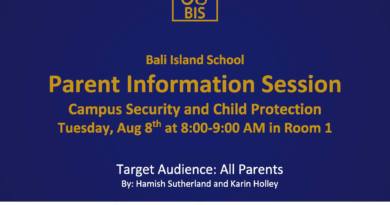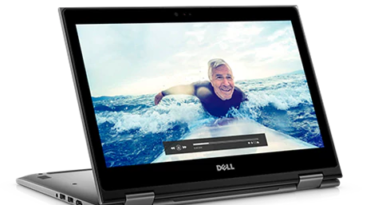What Every Parent Needs To Know About Technology – summary, handouts, and other resources
Dear BIS community,
In case you could not attend the information session this week, please find here the slides, as well as an overview and links to resources. If you wish to download the slides, click here (PDF file).
During the presentation, we discussed the following ideas:
- Our kids are growing as Digital Natives, which means that they consider technology completely normal: for them, we have always had this, we have always been able to videoconference family and friends on the other side of the planet, use GPS navigation, watch online videos everywhere, take photos with our phones, etc. It does NOT mean that they suddenly have higher brain powers to allow them to handle technology any better (or worse) than their parents. See here: The digital native is a myth.
- One of the reasons to include technology in our school is to help us teach our kids how to use technology appropriately: when is it helpful? when is it constructive? when should it be put aside and switched off? If we do not have it in the classroom, it is much harder to teach it: what it is, how it works, how to use it.
- Digital Citizenship: “Being a good digital citizen is more than knowing your way around the web. It’s about empowering yourself with skills to think critically, behave safely, and participate responsibly online, allowing you to connect and collaborate in meaningful ways.”
- At BIS, we are looking at ways to increase how we bring Digital Citizenship into our classrooms, and we have based our Acceptable Use Agreement on this concept. See the “Forms and Documents” page.
- We recommend that parents use Common Sense Media as an excellent reference. See https://www.commonsensemedia.org.
- Cyberbullying: There are plenty of resources, and it is a serious problem. As the topic would be long, we recommend that you look at these as a good start:
- Youtube: Cyberbullying Virus
- Common Sense section on Cyberbullying – plenty of articles and videos, including how to help your kid if they are affected by it.
- Filtering and other technological tools are useful, but never 100% effective. It is also really easy to get into a competition between you and your child, as they try to get around the technology controls that parents may have installed. We recommend more human approaches: come up with agreements within your family about how we use technology. For example: screens should stay within family spaces (the living room), and go off at night to ensure good sleeping habits. Help your child develop healthy media habits.
Besides the above, the presentation has these resources linked:
Self-management supporting tools:
- Mac: SelfControl
- Windows: Cold Turkey
- Chrome: Productivity Owl or StayFocusd
- More options…
http://alternativeto.net/software/selfcontrol/?license=free
Suggestion: Sit down with your child, and agree to start one of these tools at the beginning of each homework session. Make it a shared agreement, a positive support tool.
Great resources:
- https://www.commonsensemedia.org/ – best source for tips, guides, and advice for parents. Check out their “Parent Concerns” section, including cyberbullying, privacy, social media, and more.
- https://mediasmarts.ca/parents – another great source. There is an excellent interactive presentation here: https://mediasmarts.ca/tutorial/parenting-digital-generation
- http://www.digizen.org/parents/ – Digital Citizenship resources, guides and more, by ChildNet International
- https://www.fosi.org/ – Family Online Safety Institute, yet another great reference site, with special parenting guides
- http://thinkuknow.org.au/ – an Australian resource on cyber safety. It is a partnership between the Australian Federal Police (AFP), Microsoft, Datacom and other organisations and has some very useful information, including a parent portal with fact sheets on Instagram, Facebook, Snapchat, Minecraft etc, as well as how to apply parent controls to devices.
And finally, for general computer safety, we recommend these tools, all of them for Windows and Apple Macbooks:
- Avira Free antivirus, free for personal use.
- A good alternative is Avast Antivirus, also free for personal use.
- Additionally, we recommend using MalwareBytes, the free edition is sufficient, as long as you remember to scan your computer regularly (for example every 2 weeks).
- Note that Android and iPhone devices have built-in malware protection which should be enough for most users.
Please do not hesitate to contact us, or encourage your child to do so, if you have any doubts or concerns.
Best regards,
Urko Massé
IT Manager



